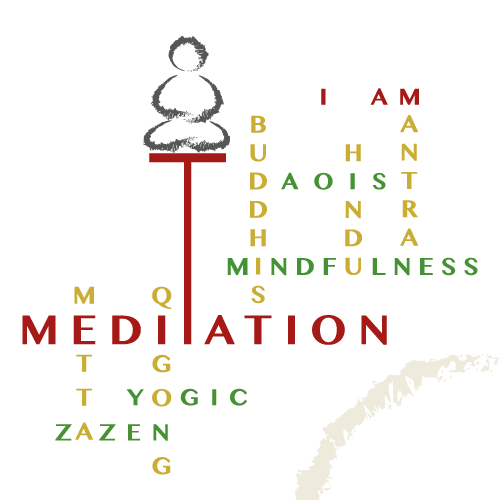Does meditation help with healing? This question is asked a lot for meditation has become popular in much of society in recent years because of its healing benefits. If you’re someone who’s interested in alternative ways to improve your health, you may have heard about the potential benefits of meditation. Meditation is an ancient practice that has been used for centuries to promote relaxation, reduce stress, and improve overall well-being. But can meditation also help with healing?
Some studies suggest that meditation can indeed have a positive impact on the healing process. For example, a study published in the Journal of the American Medical Association found that mindfulness meditation can help reduce symptoms of anxiety and depression in patients with chronic pain. Another study published in the Journal of Alternative and Complementary Medicine found that meditation can help improve immune function and reduce inflammation in the body. While more research is needed to fully understand the relationship between meditation and healing, these studies suggest that there may be real benefits to incorporating meditation into a healing regimen.
So, if you’re someone who is dealing with a health condition or injury, you may want to consider adding meditation to your treatment plan. Of course, it’s important to speak with your healthcare provider before starting any new treatment, including meditation. But if your provider gives you the green light, there’s no harm in giving meditation a try. Who knows? It just might help you feel better and promote healing in your body.
The Science Behind Meditation and Healing
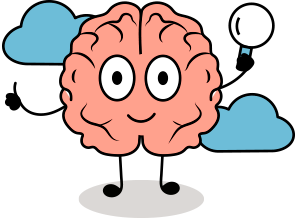
Meditation has been used for centuries as a way to calm the mind and promote relaxation. However, recent scientific studies have shown that meditation can have a positive impact on physical health and may even help with healing.
One of the ways that meditation can help with healing is by reducing stress. When you experience stress, your body releases hormones that can increase inflammation and impair your immune system. By meditating regularly, you can reduce the amount of stress you experience and promote a more relaxed state of being. This, in turn, can help to reduce inflammation and improve your immune system’s ability to fight off illness and disease.
Another way that meditation can help with healing is by promoting a positive mindset. When you meditate, you focus on the present moment and let go of negative thoughts and emotions. This can help to reduce feelings of anxiety and depression, which can have a negative impact on your physical health. By promoting a more positive mindset, meditation can help to improve your overall well-being and potentially speed up the healing process.
Research has also shown that meditation can have a positive impact on pain management. By focusing on your breath and becoming more aware of your body, you can learn to manage pain more effectively. This can be particularly helpful for people with chronic pain conditions who may be looking for alternative ways to manage their symptoms.
Overall, the science behind meditation and healing is still being explored, but the evidence so far suggests that meditation can have a positive impact on physical health and well-being. By reducing stress, promoting a positive mindset, and improving pain management, meditation may be a valuable tool for those looking to improve their health and speed up the healing process.
How Meditation Promotes Physical Healing
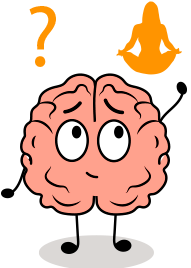
Meditation is an ancient practice that has been used for centuries to promote physical and mental well-being. Recent scientific research has confirmed that meditation can have a positive impact on physical health by boosting the immune system, reducing physical pain, and improving cardiovascular health.
Boosting the Immune System
Meditation has been shown to boost the immune system by increasing the activity of natural killer cells, which are responsible for fighting off viruses and cancer cells. A study published in the Journal of Psychosomatic Research found that participants who practiced mindfulness meditation for eight weeks had significantly higher levels of natural killer cell activity than those who did not meditate. This suggests that regular meditation can help you stay healthy by strengthening your immune system.
Reducing Physical Pain
Meditation has also been shown to be effective in reducing physical pain. A study published in the Journal of Pain found that mindfulness meditation was effective in reducing chronic low back pain. Participants who practiced mindfulness meditation for eight weeks reported a significant reduction in pain intensity and disability compared to those who received standard care. Meditation can also help reduce the perception of pain by changing the way the brain processes pain signals.
Improving Cardiovascular Health
Meditation can also have a positive impact on cardiovascular health. A review of 23 studies published in the Journal of the American Heart Association found that meditation was associated with a reduction in blood pressure. The study also found that meditation was associated with a reduction in cholesterol levels and a decrease in the risk of heart disease. Meditation can help reduce stress, which is a major risk factor for cardiovascular disease.
In conclusion, meditation can be a powerful tool for promoting physical healing. By boosting the immune system, reducing physical pain, and improving cardiovascular health, meditation can help you stay healthy and improve your overall well-being. Incorporating meditation into your daily routine can be a simple and effective way to support your physical health.
Meditation and Mental Healing
Meditation is a powerful tool for mental healing. By focusing your mind and calming your thoughts, you can reduce stress, improve mental resilience, and enhance emotional well-being. Here are some ways meditation can help with mental healing:
Stress Reduction
Stress is a common problem that can lead to a variety of physical and mental health issues. Meditation can help reduce stress by calming your mind and relaxing your body. When you meditate, you focus on your breath and let go of distracting thoughts. This can help you feel more relaxed and less anxious.
Improving Mental Resilience

Mental resilience refers to your ability to cope with challenges and bounce back from adversity. Meditation can help improve mental resilience by teaching you to focus on the present moment and let go of negative thoughts. This can help you develop a more positive outlook on life and feel more confident in your ability to handle difficult situations.
Enhancing Emotional Well-being
Emotional well-being refers to your overall sense of happiness and contentment. Meditation can help enhance emotional well-being by promoting feelings of calm, relaxation, and inner peace. This can help you feel more positive and optimistic about life, and improve your relationships with others.
In summary, meditation is a powerful tool for mental healing. By reducing stress, improving mental resilience, and enhancing emotional well-being, meditation can help you feel more calm, confident, and content.
Types of Healing Meditations
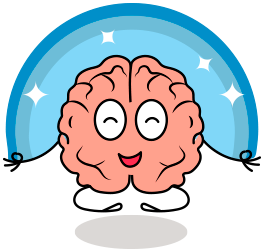
Meditation is an ancient practice that has been used for centuries to promote physical, mental, and emotional well-being. There are several types of healing meditations, each with its unique benefits and techniques. In this section, we will explore three of the most common types of healing meditations.
Mindfulness Meditation
Mindfulness meditation is a type of meditation that involves focusing your attention on the present moment, without judgment. This type of meditation can help you become more aware of your thoughts, feelings, and sensations, and can help you develop a greater sense of calm and clarity.
To practice mindfulness meditation, find a quiet place where you can sit comfortably. Close your eyes and focus your attention on your breath. Notice the sensation of the air moving in and out of your body. If your mind starts to wander, gently bring your attention back to your breath.
Loving-Kindness Meditation
Loving-kindness meditation is a type of meditation that involves cultivating feelings of love, kindness, and compassion toward yourself and others. This type of meditation can help you develop a greater sense of empathy, reduce stress and anxiety, and improve your relationships with others.
To practice loving-kindness meditation, find a quiet place where you can sit comfortably. Close your eyes and bring to mind someone you love. Focus on the feeling of love and warmth that arises in your heart. Then, extend that feeling of love and warmth to yourself, and then to others.
Body Scan or Progressive Relaxation
Body scan or progressive relaxation is a type of meditation that involves systematically relaxing each part of your body, from your toes to the top of your head. This type of meditation can help you release tension and stress from your body and can help you develop a greater sense of relaxation and calm.
To practice body scan or progressive relaxation, find a quiet place where you can lie down comfortably. Close your eyes and focus your attention on your toes. Notice any tension or discomfort in that area, and then release it as you exhale. Move your attention up to your feet, ankles, calves, and so on, until you have relaxed every part of your body.
How to Incorporate Meditation into Your Healing Process
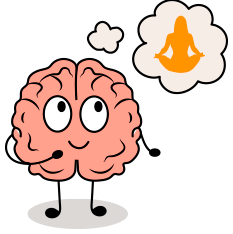
Meditation is a simple and effective way to reduce stress and anxiety, improve mental clarity, and promote overall well-being. If you are looking to incorporate meditation into your healing process, here are some tips to get you started:
1. Start with a Simple Practice
Begin with a simple meditation practice that you can do for just a few minutes each day. Sit in a quiet place, close your eyes, and focus on your breath. When your mind wanders, gently bring your attention back to your breath. You can use a guided meditation app or video to help you get started.
2. Make it a Daily Habit
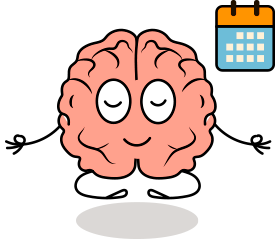
Consistency is key when it comes to meditation. Aim to practice every day, even if it’s just for a few minutes. Set aside a specific time each day for your practice, whether it’s first thing in the morning or before bed at night.
3. Incorporate Mindfulness into Your Daily Life
Mindfulness is the practice of being present and fully engaged in the current moment. You can incorporate mindfulness into your daily life by paying attention to your senses, thoughts, and emotions as you go about your day. This can help you stay grounded and centered, even in stressful situations.
4. Try Different Types of Meditation
There are many different types of meditation, including mindfulness meditation, loving-kindness meditation, and transcendental meditation. Try out a few different types to see what works best for you. You can also combine different types of meditation to create a personalized practice that meets your unique needs.
5. Seek Out Professional Guidance
If you are new to meditation or have specific health concerns, it may be helpful to seek out professional guidance. A therapist or meditation teacher can help you develop a practice that is tailored to your needs and goals.
Incorporating meditation into your healing process can be a powerful tool for promoting physical, emotional, and spiritual well-being. With a little practice and patience, you can develop a meditation practice that supports your healing journey.
Potential Challenges and Solutions in Healing Meditation
Meditation has been shown to have positive effects on physical and mental health, including reducing stress levels, improving sleep quality, and even reducing symptoms of depression and anxiety. However, like any practice, there can be potential challenges to overcome when using meditation as a tool for healing. Here are some potential challenges you may encounter and solutions to help overcome them.
Challenge: Difficulty Staying Focused
One of the biggest challenges when starting a meditation practice is staying focused. It can be difficult to quiet your mind and stay present in the moment, especially if you are dealing with physical or emotional pain. However, the benefits of meditation come from being able to stay focused and present, so it’s important to find ways to overcome this challenge.
Solution: Start with Short Sessions and Practice Regularly
One solution to this challenge is to start with short meditation sessions and gradually increase the length over time. This can help you build up your ability to stay focused and present. Additionally, practicing regularly can help you develop the habit of meditation, making it easier to stay focused in the future.
Challenge: Physical Discomfort
Another challenge you may encounter when using meditation for healing is physical discomfort. Sitting in one position for an extended period of time can be challenging, especially if you are dealing with chronic pain or injury.
Solution: Experiment with Different Positions and Props
To overcome this challenge, try experimenting with different meditation positions and props. For example, you may find it more comfortable to meditate while lying down, or you may need to use cushions or blankets to support your body. Don’t be afraid to try different things until you find what works best for you.
Challenge: Lack of Motivation
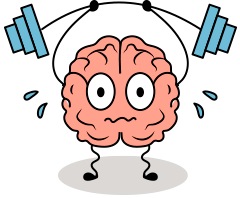
Finally, you may find that you lack the motivation to practice meditation regularly, especially if you don’t see immediate results. This can be discouraging and make it difficult to stick with your practice.
Solution: Set Realistic Goals and Find a Community
To overcome this challenge, set realistic goals for your meditation practice and track your progress. It can also be helpful to find a community of others who are practicing meditation for healing, whether in person or online. This can provide support and motivation to keep going, even when it’s challenging.
Overall, while there may be challenges to overcome when using meditation for healing, there are also solutions to help you overcome them. By starting with short sessions, experimenting with different positions and props, and finding a community of support, you can make meditation a valuable tool in your healing journey.
Conclusion
In conclusion, meditation has been shown to have a positive impact on the healing process. While it may not be a substitute for medical treatment, it can be used as a complementary approach to improve overall physical and mental well-being.
Research has shown that meditation can help alleviate symptoms of depression, anxiety, and stress, all of which can hinder the healing process. Additionally, meditation has been shown to improve immune function, which can help the body fight off infections and diseases.
Furthermore, meditation can help reduce inflammation, which is a common factor in many chronic diseases. By reducing inflammation, meditation can help promote healing and improve overall health.
While more research is needed to fully understand the mechanisms behind the healing effects of meditation, the evidence so far suggests that it can be a valuable tool in promoting overall health and well-being.
Incorporating meditation into your daily routine can be a simple and effective way to support your body’s natural healing processes. Whether you are dealing with a chronic illness or simply looking to improve your overall health, meditation can be a powerful tool to help you achieve your goals.
What is the Stress Response? Calm the mind-body connection https://1111newme.com/2023/06/05/what-is-the-stress-response-calm-the-mind-body-connection-2/

